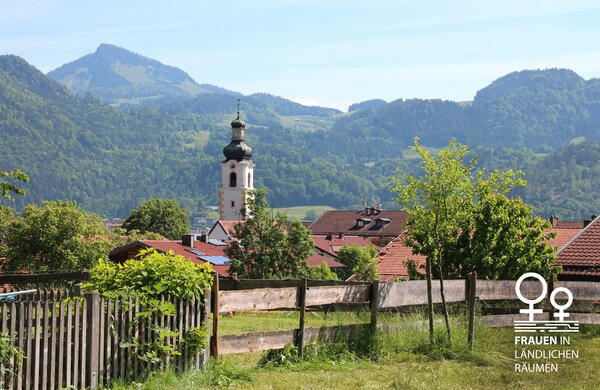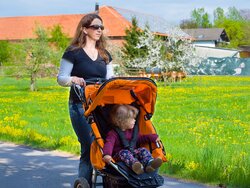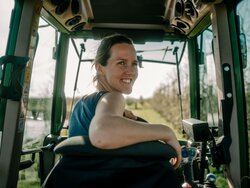Dossier
Women in rural areas
Sylvia Keim-Klärner, Petra Raue, Zazie von Davier | 17.01.2025
Women are particularly underrepresented where the greatest levers for change lie: in leadership positions, in statistics, and in the public. This imbalance is even more pronounced in rural areas compared to cities. The Thünen-Institute examines the situation of women in rural regions in a thematic focus and provides well-founded data and background information.

Without women, not much works in rural areas: they make up a third of the agricultural workforce – often as assisting family members. They are involved on a voluntary basis. But this is often not visible to the outside world. When it comes to representative positions, these tend to be occupied by men. If farms are inherited, then still more often to sons than to daughters. Women run farms, but they choose the horse farm instead of the agricultural company. Their farms are smaller, have fewer animals and are more often farmed organically.
But the situation is slowly changing. In which areas, at what pace, with which effects - this is being researched at the Thünen-Institute in several institutes. This dossier compiles the current results.



![[Translate to English:] Women on local councils](/media/_processed_/3/8/csm_Falkenberg-_DSC0120_original-2_26b0e2f686.jpg)







